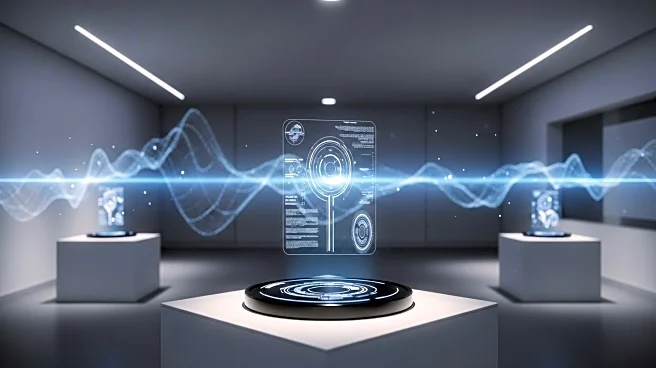What is the story about?
What's Happening?
IFA Berlin 2025, held from September 5-9, showcased a wide array of technological innovations from industry giants like Samsung, LG, Bosch, and Hisense. The event, celebrating its 100th anniversary, aimed to create a culture-forward spectacle rather than a traditional tech conference. Highlights included Lenovo's ThinkBook VertiFlex Concept, Eufy's stair-climbing MarsWalker robovac, and Dyson's Spot+Scrub AI robot. The fair featured 1,900 exhibitors and immersive zones dedicated to Mobility Track, Beauty Hub, Gaming Specials, and Outdoor Cooking & Gardening. The IFA Sommergarten festival complemented the tech showcase with performances from local artists.
Why It's Important?
IFA Berlin 2025 highlights the growing integration of AI and sustainability in consumer technology, reflecting broader industry trends. The event's focus on lifestyle categories and experiential zones indicates a shift towards more personalized and accessible tech solutions. Innovations like smart home devices and AI-powered sports coaching tools demonstrate the potential for technology to enhance everyday life. The showcase also underscores the importance of global collaboration, with exhibitors and creators from 49 countries participating, fostering international partnerships and innovation.
What's Next?
The innovations presented at IFA Berlin 2025 are likely to influence future tech trends, with companies focusing on AI integration and sustainability. The event's success may encourage other tech fairs to adopt a more culture-forward approach, emphasizing experiential and lifestyle elements. As these technologies become more mainstream, consumers can expect increased accessibility and personalization in tech products. Companies may also explore new markets and collaborations, leveraging the insights gained from the event to drive future growth.
Beyond the Headlines
The emphasis on AI and sustainability at IFA Berlin 2025 raises ethical considerations regarding data privacy and environmental impact. As AI becomes more integrated into consumer products, companies must address concerns about data security and user consent. Additionally, the focus on sustainability highlights the need for responsible manufacturing practices and the reduction of electronic waste. These developments may prompt discussions on regulatory frameworks and industry standards to ensure ethical and sustainable tech innovation.















